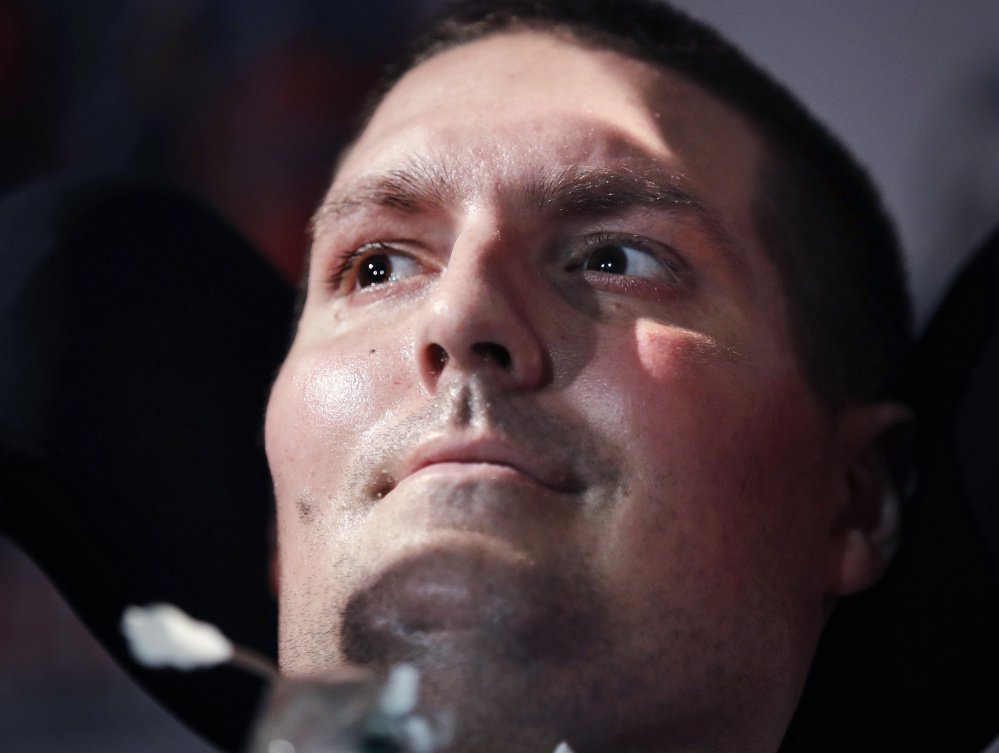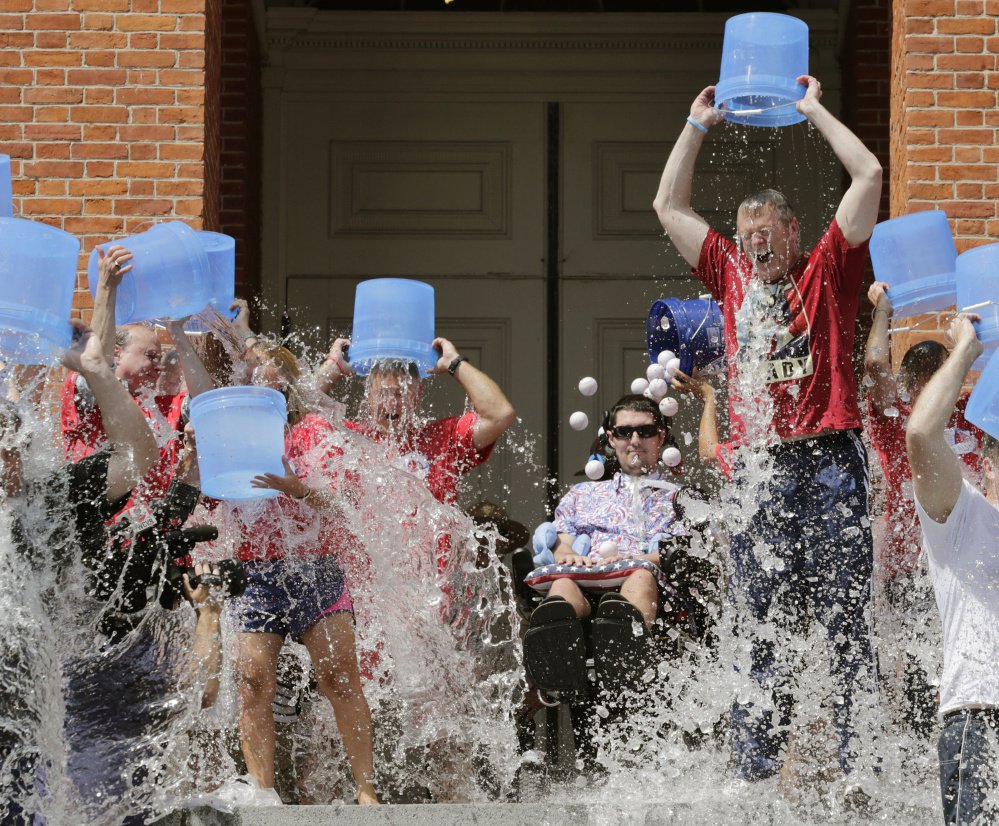BEVERLY, Mass. — Pete Frates was mistakenly written off as dead this summer. Turns out, the man who helped spark the ice bucket challenge that raised millions of dollars for research on Lou Gehrig’s disease hasn’t gone anywhere yet.
Frates is fighting back from a summer health scare that landed him in the hospital while still trying to be a public face of amyotrophic lateral sclerosis, or ALS, a degenerative disease that destroys nerve cells, impairs physical functions and so far has no cure.
The former Boston College baseball star, who can no longer speak or move, spent most of July in the hospital battling pneumonia and other infections.
In July, a tweet erroneously reporting his demise led to worldwide headlines. Frates wryly countered by posting a short video of himself lying in a hospital bed with Pearl Jam’s “Alive” playing in the background.
Using a computer system that lets him type out words through eye movements, Frates has been tweeting about his progress to his nearly 30,000 followers, along with regular musings about his family and friends, living with ALS and Boston sports.
“lots of down days as you can imagine with als, sometimes you don’t feel human,” he tweeted Sept. 23. “Today I am definitely feeling sorry for myself, sukxx. but I will bounce back. Eff! you als.. Friggin a hole!!”
In the weeks since his July health scare, the 32-year-old has re-emerged to accept honors and accolades across his home state of Massachusetts.
Last month, he joined Boston Mayor Marty Walsh, Red Sox officials and the Boston College baseball team on the steps of City Hall to declare Sept. 5 “Pete Frates Day” in Boston.
And former Red Sox slugger David Ortiz and other Boston sports legends feted Frates at Fenway Park to mark the release of a new book on his life, “The Ice Bucket Challenge: Pete Frates and the Fight Against ALS.” Half the proceeds benefit Frates and his family.
Frates’ wife, Julie, said it’s been a difficult and busy few months, but she couldn’t persuade her husband to slow things down even if she wanted to. “He’s the one pushing to be out there,” she said. “We all take the lead from him.”
The ice bucket challenge had been around for almost a year to benefit various causes. But Frates is credited with helping focus it on ALS specifically and taking it global using his wide network of supporters as an established ALS advocate.
The challenge raised roughly $220 million in 2014, of which $115 million went to the ALS Association. A sequel campaign the next summer raised just over $1 million, according to the association.
The ALS Association says it has committed more than $89 million of the 2014 windfall to research.
“New, exciting research is just starting to pan out, and that’s drawing new talent to ALS research, and a lot of companies are now interested in ALS,” said Dr. Nazem Atassi, a Massachusetts General Hospital neurologist whose ALS research benefited from ice bucket challenge money. “It’s the perfect environment for drug discovery.”
Among the most promising developments to come out of research funded by the challenge has been the identification of at least four genes that contribute to the disease, a critical step toward developing new treatments, said Kevin Eggan, a Harvard University professor who specializes in ALS.
Another development that gives the Frates family hope is Radicava, a drug approved by the U.S. Food and Drug Administration in May following testimony from the Frates and other advocates. It’s the first new treatment approved specifically for ALS in 22 years.
Frates’ mother, Nancy, said they’re applying to get her son on the drug, even though it’s not clear how it might help, given his advanced condition. The medication, which was developed in Japan without funding from the ice bucket challenge, has been shown to slow the disease in recently diagnosed patients.
“You just want it to stop,” Nancy said. “You want someone to say this disease is not tearing through your loved one’s body anymore.”
ALS is still finding new ways to attack Frates, said his father, John, a city councilor in Beverly who quit his financial services job to help care for his son after he was diagnosed in 2012.
Frates’ bladder stopped working last year, requiring his urine now to be drained with a catheter every three hours, John Frates said.
“It’s amazing he’s tolerating all of it. It just shows the courage, will and determination he has to be with us,” Frates’ father said. “He’s as incapacitated as a human being can be. That’s his quality of life.”
Send questions/comments to the editors.




Comments are no longer available on this story